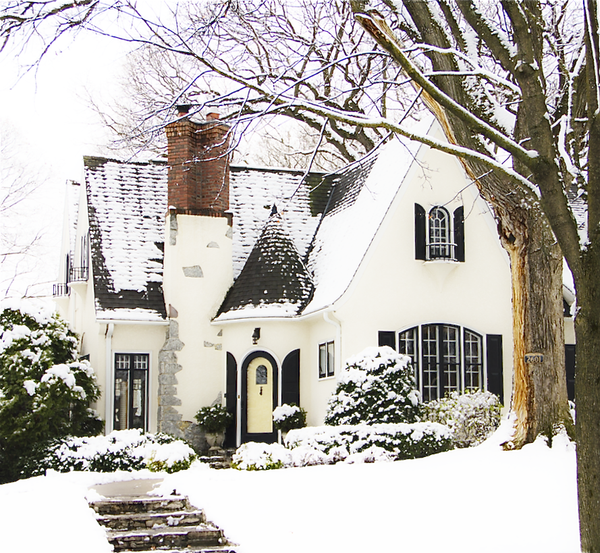In the realm of buying or selling a home, grasping its condition stands as a pivotal factor. This is precisely where the role of home inspections comes to the fore. These evaluations play a vital role in revealing latent concerns, guaranteeing that both purchasers and vendors can approach their decisions with a well-informed perspective.
Within the pages of this extensive blog post, we will embark on a thorough exploration of the assorted categories of home inspections. Our aim is to illuminate the critical role they play, how they enrich the overall process, and underscore the reasons why homeowners and potential buyers should accord them due consideration.
10 Types of Home Inspections Buyers Should Know
There are different types of home inspections, but here we will discuss 10 of them, which are listed below:
1. Pre-Purchase Home Inspection:
Before sealing the deal on a new home, a pre-purchase inspection is a must. This thorough evaluation, conducted by a licensed inspector, examines the overall condition of the property. From the foundation to the roof and everything in between, the inspector checks for any hidden problems that might not be apparent to the untrained eye.
Structural issues, faulty wiring, plumbing leaks, or HVAC concerns can all be discovered during this inspection. By knowing the home's true condition, buyers can negotiate repairs or adjust the purchase price accordingly, ensuring a smooth transaction and peace of mind.
2. Pre-Listing Home Inspection:
Home sellers can greatly benefit from a pre-listing inspection as well. By proactively assessing their property's condition before listing it on the market, sellers can address potential problems beforehand. This can save both time and money during the selling process.
Additionally, it increases their chances of selling the home quickly and at a better price. Furthermore, a pre-listing inspection enhances transparency and trust with potential buyers, showing that the seller is committed to an honest and upfront transaction. Contact EasyDigz for a pre-listing inspection. Learn more about the different types of inspections here.
3. Structural Inspection:
A sound structure is essential for any home's safety and longevity. A structural inspection carefully examines the foundation, walls, roof, and other load-bearing components.
The inspector looks for signs of settling, cracks, or any structural damage that might compromise the integrity of the building. Identifying structural issues early can prevent costly repairs down the road and ensure the home remains a safe haven for its inhabitants.
4. Electrical Inspection:
Electrical systems play a vital role in any home. An electrical inspection examines the wiring, circuit breakers, outlets, and other electrical components. The primary goal of this evaluation is to ensure the safety of the occupants and confirm compliance with local electrical codes. Moreover, upgrading an outdated electrical system can enhance the home's energy efficiency and reduce the risk of electrical hazards.
5. Plumbing Inspection:
A thorough plumbing inspection assesses the water supply, drainage, and sewage systems. The inspector checks for leaks, blockages, or potential issues that could lead to water damage or mold growth. Maintaining a healthy plumbing system ensures a steady supply of water and efficient drainage throughout the property. It also prevents potentially expensive repairs that could arise from neglecting plumbing problems.
6. Roof Inspection:
The roof acts as the home's shield against the elements. A roof inspection evaluates its condition, identifying any signs of damage, leaks, or deterioration. Addressing roof issues promptly can prevent water intrusion and subsequent damage to the home's interior, saving homeowners significant repair expenses. Additionally, regular roof inspections can help extend the roof's lifespan and ensure the home's long-term protection.
7. HVAC Inspection:
Heating, ventilation, and air conditioning (HVAC) systems are crucial for maintaining a comfortable living environment. An HVAC inspection ensures these systems operate efficiently, keeping energy costs in check and prolonging their lifespan.
During this inspection, the technician will check the functionality of heating and cooling equipment, inspect ductwork, and assess indoor air quality. Regular inspections and maintenance also improve indoor air quality, promoting a healthier living environment for occupants. Also, read more about HVAC inspection in this blog.
8. Pest and Termite Inspection:
Pests and termites can wreak havoc on a home's structure and cause extensive damage if left unattended. A thorough pest and termite inspection can uncover any existing infestations and help homeowners take preventive measures.
Addressing pest issues promptly protects the property and ensures a safe living environment. It also provides potential buyers with peace of mind knowing that the property is free from infestations and damages caused by pests.
9. Environmental Inspections:
Environmental assessments are essential to identify potential hazards that could pose risks to the home and its occupants. These hazards may include mold, radon, asbestos, or other toxic substances.
Detecting these issues early can prevent health problems and ensure the home remains a safe place to live. If hazardous substances are found, proper remediation measures can be taken to eliminate or minimize these risks.
10. New Construction Inspection:
Even brand-new homes can have construction defects or issues. A new construction inspection ensures the quality of workmanship and materials used in the building process.
It provides an objective assessment of the home's condition, helping homeowners identify any potential issues or deficiencies before they become major problems. Identifying and rectifying issues early on helps homeowners avoid problems and warranty-related challenges with the builder.
The Bottom Line:
A home inspection is advantageous both for buyers and sellers. The different types of home inspections, such as pre-purchase, pre-listing, structural, electrical, plumbing, roof, HVAC, pest, termite, environmental, and new construction inspections, provide valuable insights into a property's condition.
By investing in these evaluations, homeowners can make informed decisions, protect their investments, and ensure the safety and comfort of their living spaces. With the Easydigz real estate platform at your side, the sale process is simplified. It connects you with home inspectors when listing your home, ensuring your property is thoroughly evaluated. Whether buying, selling, or maintaining a home, home inspections are a wise and proactive choice to safeguard your property and peace of mind.








